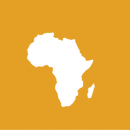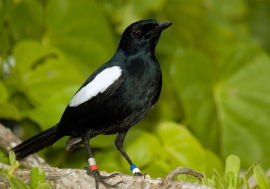‘Renewed energy for women’s empowerment’
‘Renewed energy for women’s empowerment’
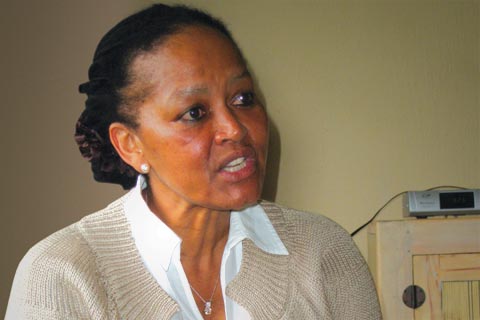 “Women’s political representation is absolutely important,” says Nomcebo Manzini, head of UN Women for Southern Africa.
“Women’s political representation is absolutely important,” says Nomcebo Manzini, head of UN Women for Southern Africa.In South Africa and Mozambique, women have reached the benchmark of 30 per cent women’s representation in parliament. What’s the picture across Southern Africa?
As a sub-region we certainly have a long way to go. A few countries have been doing well, but there are others that have regressed. In terms of women in political leadership positions, the average is only 18 per cent. It is way below the 30 per cent we have been calling for, and far below the 50 per cent that the heads of state and government agreed to in signing the Gender and Development Protocol [of the Southern African Development Community, SADC]. We are seeing a lot of change at the local level. Most countries seem to be doing much better in terms of representation in local governments. This might be because women work in the community and are better known at that level.
Women’s political representation is absolutely important because participation is a basic human right. Women bring their experiences, knowledge and capacities, which are different from those that men bring.
Beyond getting into office, how can women better engage with broader governance issues, including political conflicts?
One of the things that UN Women is doing is building capacities for women to participate in leadership, but transformative leadership, so that they can engage from a perspective of basic human rights and understand broader governance issues and democracy in general. Some countries are in deep conflict. Our position is to support women to participate in negotiations, in mediation, but also in prevention. In Comoros, for instance, we are working within the context of the UN country team on a peacebuilding project. Our contribution is to build the skills of women to understand the issues of gender relations in peace, in peacebuilding, even in conflicts and how conflicts happen. Even if they understand that, they need to build allies within the traditional leaderships, amongst men, with their partners, etc. We try to engage a more holistic approach to dealing with such issues.
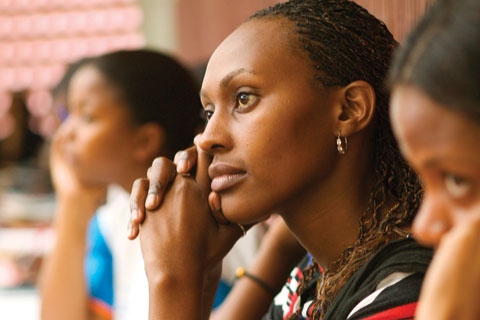 Students at the University of Dar es Salaam, Tanzania: In many countries, there is now gender parity in the primary schools, but economic and social constraints hinder more girls from moving up to secondary and tertiary education.
Students at the University of Dar es Salaam, Tanzania: In many countries, there is now gender parity in the primary schools, but economic and social constraints hinder more girls from moving up to secondary and tertiary education.UN Women coordinates the Africa Unite campaign, which targets violence against women and girls. What is the main challenge?
The problem is the resources. We are not getting enough funds from national budgets or from the donor community. African heads of state launched the campaign in Africa in January 2010. We are now doing advocacy with the different heads of state to ensure that their ministries of planning and finance allocate funds for implementing the national action plans.
We have safer cities programmes that we will be rolling out in several countries, working with UNICEF. Research shows that rape of young girls is normally of school children in the early morning when they are going to school, and in the evening when they are going back home, often through thick bushes and other unsafe pathways. But when we talk to governments about this, they hardly have the resources to provide sanitation and water to communities. They don’t see it as a priority.
And the judicial and security systems?
We work with the police, military and other entities in the security sector to make sure they understand the gender dimensions of policing and security, also gender-based violence. We had a conference to talk about how we can support the SADC gender unit to mainstream gender in the SADC Organ on Politics, Defence and Security. We talked about ensuring that the officers who go on peacekeeping missions have some gender training.
We look also at the informal justice sector. In Southern Africa research clearly shows that when women experience abuse or violence in the home they are not going to the police as a first port of call. They go either to their families or to traditional leadership.
There has been real progress in narrowing the gap between boys and girls entering primary school. But do the girls stay in school?
That is a fundamental point. Looking at many countries, we find that there is parity in terms of entry. In some countries girls are even surpassing boys in entering basic education. But as you move further into the school years and you get into grade seven and eight there are fewer girls continuing in school. Parents are more likely to withdraw the girls from school if they are cash-strapped — or the girls are going to get married. The other problem is that pregnancy in schools is very high and girls will drop to have the babies. Girls also tend to have more work to do in the home, so they have less time to study and therefore tend to have a lower passing rate than the boys.
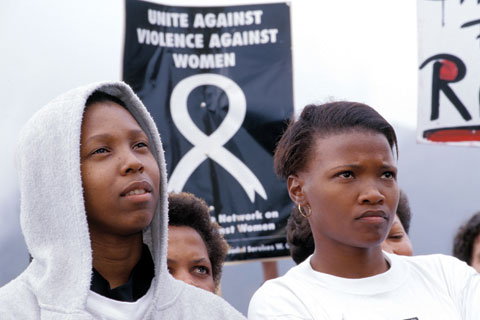 International Women's Day rally in Cape Town, South Africa: More funding is needed for national programmes to combat violence against women and girls.
International Women's Day rally in Cape Town, South Africa: More funding is needed for national programmes to combat violence against women and girls.Southern Africa has the highest HIV prevalence rates in the world. How are women affected?
So much money has come through for programmes against HIV and AIDS. But the work has not taken into account the clear connection between gender inequality and the spread of HIV/AIDS. In some Southern African countries there are 5 per cent of men with HIV, but you find 20 to 22 per cent of young women of the same age group with HIV.
When you do the research, it is very much: "I didn’t want to sleep with him, but he forced me." And then there is the whole issue of "survival sex" in Southern Africa, where young girls will sleep with older men so that they are able to go to school.
And women are also more likely than men to be in poverty…
It seems as though even our governments have now acknowledged that development is not going to happen without the full involvement and participation of women in the economy. But they have not just all of a sudden become benevolent. It is because of the advocacy that has been coming from the women’s movements and from the ministries responsible for women and gender.
At UN Women we are working with five governments in the sub-region in a pilot programme to see exactly what women are doing to get out of poverty. Most of these women are in what is called the informal sector, and their work is not recognized. The women who kept the Zimbabwe economy going at the lowest point in its history are not recognized even today. Yet they ensured the survival of their families and the economy.
It is absolutely fundamental to deal with the economic empowerment of women, because we know that when women have that economic independence they are more likely to be able to make decisions about their dignity, their security and their welfare.
Does UN Women work with rural women?
We have a $33 million project that we are currently fund-raising for as UN Women to do exactly that, to work with rural women, particularly rural women farmers. It is a major challenge. At least 70 per cent of the labour in agriculture is women. When we seek $33 million, that’s a drop in the ocean really, it’s nothing in terms of the need. And what happens when the $33 million is finished? We need to be able to define programmes that governments include in their own national development plans. And governments must be able to desist from corruption. It is not that the national resources are not there, but they are misused.
UN Women has just been created, merging four different UN entities that dealt with women. For women here in Southern Africa, what difference can UN Women make?
What I see already is just an amazing amount of renewed energy for women’s empowerment in the various areas of work, since the creation of UN Women. Renewed hope indeed that UN Women will do things better and faster in promoting women’s rights globally. It is a very tough call for us in UN Women to deliver on that.
I was privileged to be part of the first strategic meeting for UN Women in January this year [2011], when all the different entities came together. You could feel it in the room, the energy. Madam [Michelle] Bachelet is using her diplomatic skills to bring us together. We have been holding consultations with different partners, including the donor community, governments and civil society organizations, to define what should be in our strategic plan. So we continue to be hopeful, and totally energized.

